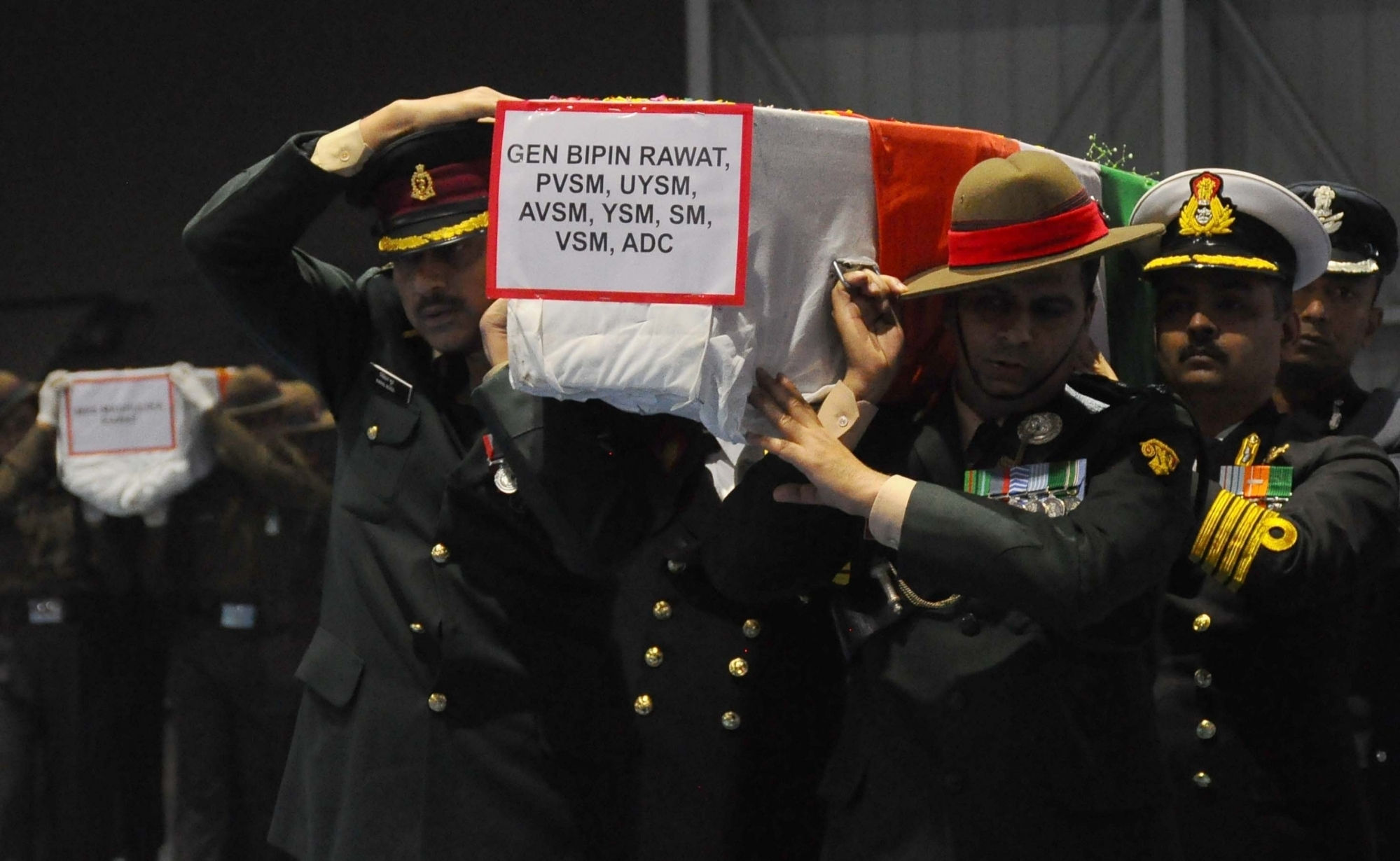Tragedy by Error: CDS Bipin Rawat’s Final Flight
The fatal 2021 Mi-17 V5 helicopter crash that killed Chief of Defence Staff (CDS) General Bipin Rawat, his wife Madhulika Rawat, and 12 others was caused by human error, according to the latest Parliamentary Standing Committee report. The findings, tabled recently, highlight a "controlled flight into terrain" caused by pilot disorientation due to sudden weather changes in Tamil Nadu’s Nilgiri Hills.
The report is a grim reminder of systemic gaps in India’s aviation protocols, particularly for high-stakes VIP operations. While the crash was ruled out as sabotage, critics argue that more rigorous training, better real-time weather monitoring, and updated cockpit technology might have averted the disaster.
Questions loom over accountability. Why weren’t precautionary measures enforced during such a critical mission? Did organizational complacency overshadow the need for stringent oversight? Aviation experts note that human error is often a symptom of deeper systemic flaws, rather than isolated negligence.
The crash robbed India of one of its most influential military leaders, marking a dark chapter in the nation’s defense history. It also underscores the urgent need for reforms in VIP flight operations.
The government, meanwhile, maintains that lessons have been learned, with protocols revised to prevent future mishaps. Yet, families and stakeholders continue to seek reassurance that such tragedies will not recur. As the nation mourns its loss, the focus now shifts to ensuring safety reforms don’t remain mere rhetoric.
